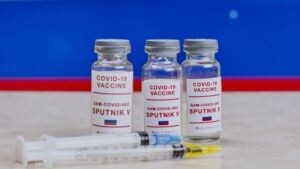Rock Ronald Rozario and Stephan Uttom
For Abdur Razzak cows conjured up images of fortune. He knew that acting on such thoughts would be dangerous and even cost him his life. Illiterate and impoverished, this Muslim villager found no other way out and so for the past 20 years he made a small fortune smuggling cows from nearby India into Bangladesh.
Razzak purchased land, built a brick house, and lived a relatively comfortable life with his wife and four children. Then the inevitable happened. He was brutally tortured and killed by Indian border security forces in May.Two days after he was killed, his body arrived home in Bonbari, the northern Bangladesh’s Thakurgaon district. “Seeing his horribly mutilated body, I fainted,” said his distraught wife Musammat Aktara. “Allah will take care of me and the rest of my family. We have some land and we will live by cultivating it,” she added.
Hindus who make up most of India’s population consider cows sacred while in neighboring Muslim-majority Bangladesh cows are slaughtered for food and beef is considered a delicacy. Cows in Bangladesh can fetch up to five times more money than they do in India.
India does not allow the export of cows and hence any cross-border cattle trade is illegal. Moreover, the pro-Hindu Indian government is presently pushing for a nationwide ban on cow slaughter and has asked its border troops to put a complete halt to smuggling of cattle to Bangladesh.
In the past 10 years, Indian soldiers have gunned down more than 1,000 people — mostly Bangladeshi villagers, including children, according to a report by New York-based Human Rights Watch.
Most villages on either side of the border are remote, undeveloped and impoverished. They lack basic facilities for education, employment, electricity and sanitation and villagers resort to smuggling of goods and cattle even at the risk of harassment or death.
Faruk Haq, 40, a farmer from Choroigedi village in Thakurgaon was shot dead by Indian border security forces three years ago, leaving his wife and two children in misery. The family members say he was a famer and never went to the border before. “He went but only once, when he was killed,” said Bobita Akter, Faruk’s wife.
The family manages a meager living by working in fields owned by Faruk’s father. They too have not sought justice nor have been helped by the government.
“Local union council members have promised to help us but they didn’t. They know my husband was killed and we are helpless with two children. The government doesn’t care for people like us,” she said.
Amid growing criticism at home and abroad, Indian authorities have begun to employ nonlethal means of border control. As a result, killings have declined but not stopped, and abuses continue even for those not involved in smuggling.
Dabirul Islam, a father of two, from Somirnagar village, was beaten and jailed by Indian security forces five months ago. He had a passport but no visa. “He was arrested as he went to see his parents who were in an Indian jail. He was arrested at the border,” said Hosne Ara, Islam’s wife.
“We are poor people and we don’t have money. We don’t know what to do to get him released. It is impossible without help from the government,” she said.
Odhikar, a Dhaka-based rights group, pointed out that about 40 Bangladeshis were shot and killed by Indian troops since January this year.
Bangladesh authorities as well as the Catholic Church are introducing livelihood programs to discourage illegal border crossings.
Caritas Dinajpur, the Catholic Church’s regional social service wing that operates in nine border districts in northern Bangladesh, is providing basic education, sanitation and livelihood opportunities for hundreds of villagers. They think this will help villagers hard pressed to make a living from resorting to cattle smuggling.
“In border areas, people are poor, illiterate and have no skills. That is why they often take up illegal activities for a living. We have been working to change the situation,” said Jogen Julian Besra, Caritas Dinajpur regional director.
It presently runs 201 European Union-funded primary schools for extremely poor children and offers soft loans to villagers to start small farms and businesses.
“Most of our projects cover border areas, where people really need them,” Besra said.
In Thakurgaon, Border Guards of Bangladesh has also launched a pilot project to create alternative employment for poor villagers, in order to dissuade them from engaging in cattle smuggling.
Alokito Simanto (Enlightened Border), a local nongovernmental organization, started a project with 23 rural families in Shutkia Para village last December that has already gained popularity.
“We have a cattle and poultry farm, carpet-making center, honey-bee plantation and biogas plant. All these are very profitable and we make good income,” said Sheikh Habib, president of the project.
“If this kind of project is introduced in other areas, people will never go to the border and get killed or abused,” he said.
Army Col. Tushar Bin Yusuf, commander of the battalion posted at Thakurgaon, said that people in border areas don’t have enough to eat. “So they try to do things that are less time-consuming but more profitable. We are trying to overcome this issue,” he said. – Source: UCANEWS.COM via Google



